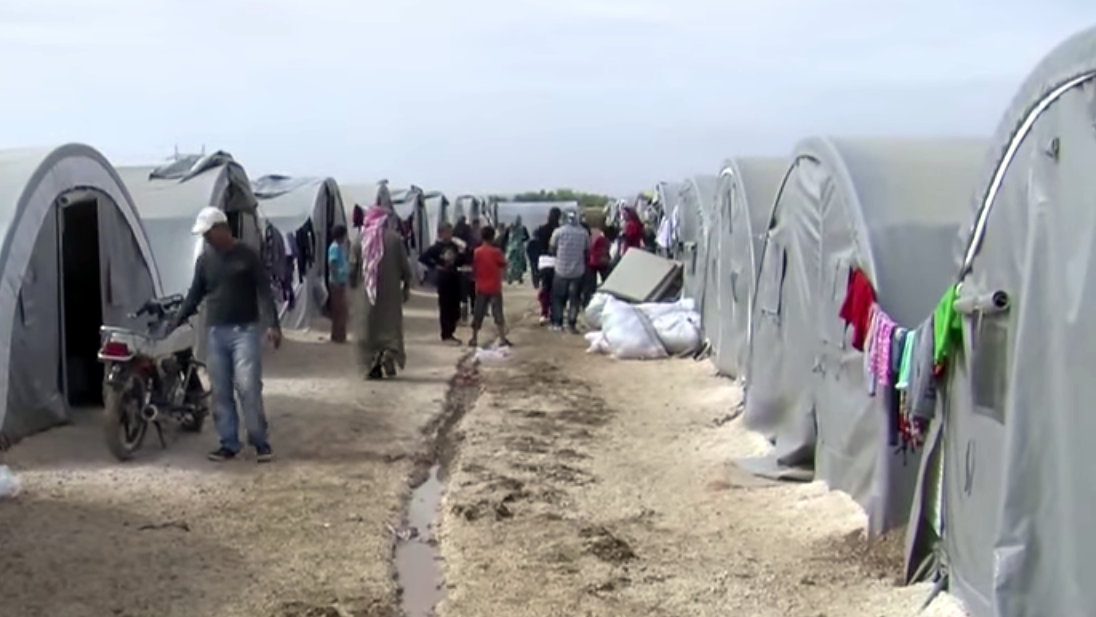|
School Of Geography, University Of Leeds
The School of Geography is part of the Faculty of Environment at The University of Leeds based in the UK. History The University of Leeds was one of the earliest British universities to establish a school of geography in 1919. Various types of geography, including commercial geography, had been taught at the Yorkshire College (which preceded the University of Leeds) and in the university economics department before 1919. This reflects an earlier and broader European interest in the use of geographical knowledge as an aid to national and international trade. The early, inter-war years were characterized by small numbers of staff and honours students, very few research students, and limited resources and range of topics covered. The school has generally expanded over the years and in 2011 has about 70 members of academic staff and a large number of research students studying a broad spectrum of geographical topics. The School of Geography is now spread over the Garstang Buildin ... [...More Info...] [...Related Items...] OR: [Wikipedia] [Google] [Baidu] |
The University Of Leeds
The University of Leeds is a public research university in Leeds, West Yorkshire, England. It was established in 1874 as the Yorkshire College of Science. In 1884, it merged with the Leeds School of Medicine (established 1831) and was renamed Yorkshire College. It became part of the federal Victoria University (UK), Victoria University in 1887, joining Owens College (which became the University of Manchester) and University College Liverpool (which became the University of Liverpool).Charlton, H. B. (1951) ''Portrait of a University''. Manchester: U. P.; chap. IV In 1904, a royal charter was granted to the University of Leeds by Edward VII, King Edward VII. Leeds is the list of universities in the United Kingdom by enrolment, tenth-largest university in the United Kingdom by total enrolment and receives over 68,000 undergraduate applications per year, making it the fourth-most popular university (behind University of Manchester, Manchester, University College London and King's C ... [...More Info...] [...Related Items...] OR: [Wikipedia] [Google] [Baidu] |
Research Assessment Exercise
The Research Assessment Exercise (RAE) was an exercise undertaken approximately every five years on behalf of the four UK higher education funding councils ( HEFCE, SHEFC, HEFCW, DELNI) to evaluate the quality of research undertaken by British higher education institutions. RAE submissions from each subject area (or ''unit of assessment'') are given a rank by a subject specialist peer review panel. The rankings are used to inform the allocation of quality weighted research funding (QR) each higher education institution receives from their national funding council. Previous RAEs took place in 1986, 1989, 1992, 1996 and 2001. The most recent results were published in December 2008. It was replaced by the Research Excellence Framework (REF) in 2014. Various media have produced league tables of institutions and disciplines based on the 2008 RAE results. Different methodologies lead to similar but non-identical rankings. History The first exercise of assessing of research in highe ... [...More Info...] [...Related Items...] OR: [Wikipedia] [Google] [Baidu] |
Ethnicity
An ethnicity or ethnic group is a group of people with shared attributes, which they Collective consciousness, collectively believe to have, and long-term endogamy. Ethnicities share attributes like language, culture, common sets of ancestry, traditions, society, religion, history or social treatment. Ethnicities may also have a narrow or broad spectrum of genetic ancestry, with some groups having mixed genetic ancestry. ''Ethnicity'' is sometimes used interchangeably with nation, ''nation'', particularly in cases of ethnic nationalism. It is also used interchangeably with ''Race (human categorization), race'' although not all ethnicities identify as racial groups. By way of cultural assimilation, assimilation, acculturation, Cultural amalgamation, amalgamation, language shift, Heterogamy#Social science, intermarriage, adoption and religious conversion, individuals or groups may over time shift from one ethnic group to another. Ethnic groups may be divided into subgroups or tr ... [...More Info...] [...Related Items...] OR: [Wikipedia] [Google] [Baidu] |
Diaspora
A diaspora ( ) is a population that is scattered across regions which are separate from its geographic place of birth, place of origin. The word is used in reference to people who identify with a specific geographic location, but currently reside elsewhere. Notable diasporic populations include the Jewish Diaspora formed after the Babylonian exile; Assyrian diaspora following the Sayfo, Assyrian genocide; Greeks that fled or were displaced following the fall of Constantinople and the later Greek genocide as well as the Istanbul pogroms; the emigration of Anglo-Saxons (primarily to the Byzantine Empire) after the Norman Conquest, Norman Conquest of England; the Chinese people, southern Chinese and South Asian diaspora, South Asians who left their homelands during the 19th and 20th centuries; the Irish diaspora after the Great Famine (Ireland), Great Famine; the Scottish diaspora that developed on a large scale after the Highland Clearances, Highland and Lowland Clearances; Romani ... [...More Info...] [...Related Items...] OR: [Wikipedia] [Google] [Baidu] |
Citizenship
Citizenship is a membership and allegiance to a sovereign state. Though citizenship is often conflated with nationality in today's English-speaking world, international law does not usually use the term ''citizenship'' to refer to nationality; these two notions are conceptually different dimensions of collective membership. Generally citizenships have no expiration and allow persons to work, reside and vote in the polity, as well as identify with the polity, possibly acquiring a passport. Though through discriminatory laws, like disfranchisement and outright apartheid, citizens have been made second-class citizens. Historically, populations of states were mostly subjects, while citizenship was a particular status which originated in the rights of urban populations, like the rights of the male public of cities and republics, particularly ancient city-states, giving rise to a civitas and the social class of the burgher or bourgeoisie. Since then states have ex ... [...More Info...] [...Related Items...] OR: [Wikipedia] [Google] [Baidu] |
Activism
Activism consists of efforts to promote, impede, direct or intervene in social, political, economic or environmental reform with the desire to make Social change, changes in society toward a perceived common good. Forms of activism range from Mandate (politics), mandate building in a community (including writing letters to newspapers), petitioning elected officials, running or contributing to a political campaign, preferential patronage (or boycott) of businesses, and demonstrative forms of activism like rallies, street marches, Strike action, strikes, sit-ins, or hunger strikes. Activism may be performed on a day-to-day basis in a wide variety of ways, including through the creation of art (artivism), computer hacking (hacktivism), or simply in how one chooses to spend their money (economic activism). For example, the refusal to buy clothes or other merchandise from a company as a protest against the Exploitation of labour, exploitation of workers by that company could be cons ... [...More Info...] [...Related Items...] OR: [Wikipedia] [Google] [Baidu] |
Sustainability
Sustainability is a social goal for people to co-exist on Earth over a long period of time. Definitions of this term are disputed and have varied with literature, context, and time. Sustainability usually has three dimensions (or pillars): environmental, economic, and social. Many definitions emphasize the environmental dimension. This can include addressing key environmental problems, including climate change and biodiversity loss. The idea of sustainability can guide decisions at the global, national, organizational, and individual levels. A related concept is that of sustainable development, and the terms are often used to mean the same thing. UNESCO distinguishes the two like this: "''Sustainability'' is often thought of as a long-term goal (i.e. a more sustainable world), while ''sustainable development'' refers to the many processes and pathways to achieve it." Details around the economic dimension of sustainability are controversial. Scholars have discussed this under ... [...More Info...] [...Related Items...] OR: [Wikipedia] [Google] [Baidu] |
Neoliberal
Neoliberalism is a political and economic ideology that advocates for free-market capitalism, which became dominant in policy-making from the late 20th century onward. The term has multiple, competing definitions, and is most often used pejoratively. In scholarly use, the term is often left undefined or used to describe a multitude of phenomena. However, it is primarily employed to delineate the societal transformation resulting from market-based reforms. Neoliberalism originated among European Liberalism, liberal scholars during the 1930s. It emerged as a response to the perceived decline in popularity of classical liberalism, which was seen as giving way to a social liberal desire to control markets. This shift in thinking was shaped by the Great Depression and manifested in policies designed to counter the volatility of free markets. One motivation for the development of policies designed to mitigate the volatility of capitalist free markets was a desire to avoid repeatin ... [...More Info...] [...Related Items...] OR: [Wikipedia] [Google] [Baidu] |
Wilderness
Wilderness or wildlands (usually in the plurale tantum, plural) are Earth, Earth's natural environments that have not been significantly modified by human impact on the environment, human activity, or any urbanization, nonurbanized land not under extensive agriculture, agricultural cultivation. The term has traditionally referred to terrestrial environments, though human impact on marine life, growing attention is being placed on marine ecosystem, marine wilderness. Recent maps of wilderness suggest it covers roughly one-quarter of Earth's terrestrial surface, but is being rapidly degraded by human activity. Even less wilderness remains in the ocean, with only 13.2% free from intense human activity. Some governments establish protection for wilderness areas by law to not only protected area, preserve what already exists, but also to promote and advance a natural expression and development. These can be set up in preserves, conservation preserves, national forests, national par ... [...More Info...] [...Related Items...] OR: [Wikipedia] [Google] [Baidu] |
Demography
Demography () is the statistical study of human populations: their size, composition (e.g., ethnic group, age), and how they change through the interplay of fertility (births), mortality (deaths), and migration. Demographic analysis examines and measures the dimensions and dynamics of populations; it can cover whole societies or groups defined by criteria such as education, nationality, religion, and ethnicity. Educational institutions usually treat demography as a field of sociology, though there are a number of independent demography departments. These methods have primarily been developed to study human populations, but are extended to a variety of areas where researchers want to know how populations of social actors can change across time through processes of birth, death, and migration. In the context of human biological populations, demographic analysis uses administrative records to develop an independent estimate of the population. Demographic analysis estima ... [...More Info...] [...Related Items...] OR: [Wikipedia] [Google] [Baidu] |
Geodemographics
Geodemography is the study of people based on where they live. It links the sciences of demography, the study of human population dynamics, and geography, the study of the locational and spatial variation of both physical and human phenomena on Earth, along with sociology. It includes the application of geodemographic classifications for business, social research and public policy but has a parallel history in academic research seeking to understand the processes by which settlements (notably, cities) evolve and neighborhoods are formed. Geodemographic systems estimate the most probable characteristics of people based on the pooled profile of all people living in a small area near a particular address. Origins The origins of geodemographics are often identified as Charles Booth and his studies of deprivation and poverty in early twentieth century London, and the Chicago School of sociology. Booth developed the idea of 'classifying neighborhoods', exemplified by his multivariate cl ... [...More Info...] [...Related Items...] OR: [Wikipedia] [Google] [Baidu] |
Retail Geography
Retail is the sale of goods and services to consumers, in contrast to wholesaling, which is the sale to business or institutional customers. A retailer purchases goods in large quantities from manufacturers, directly or through a wholesaler, and then sells in smaller quantities to consumers for a profit. Retailers are the final link in the supply chain from producers to consumers. Retail markets and shops have a long history, dating back to antiquity. Some of the earliest retailers were itinerant peddlers. Over the centuries, retail shops were transformed from little more than "rude booths" to the sophisticated shopping malls of the modern era. In the digital age, an increasing number of retailers are seeking to reach broader markets by selling through multiple channels, including both bricks and mortar and online retailing. Digital technologies are also affecting the way that consumers pay for goods and services. Retailing support services may also include the provision of cr ... [...More Info...] [...Related Items...] OR: [Wikipedia] [Google] [Baidu] |









